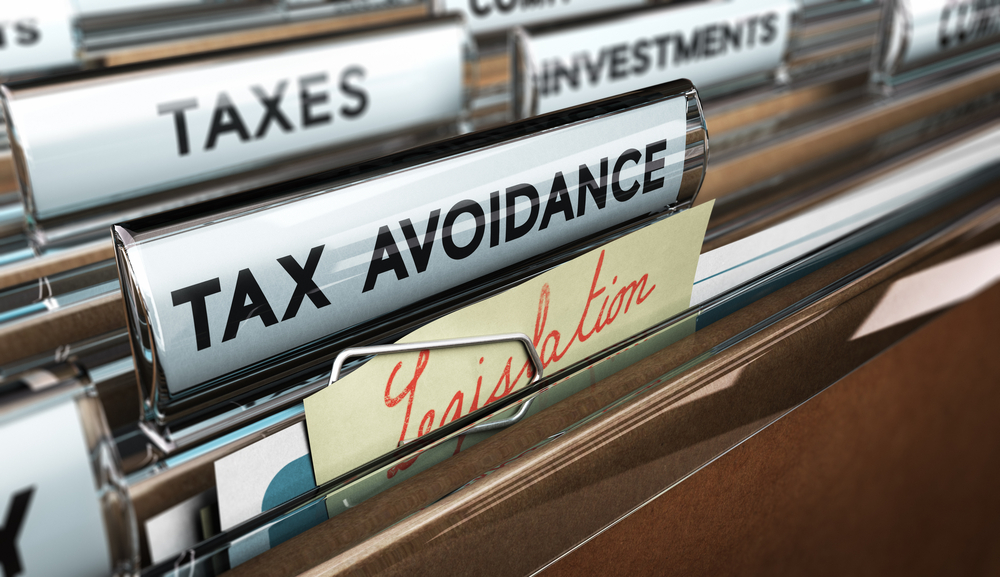Tax Avoidance Schemes – why you shouldn’t touch them with a barge pole
By John Leyden
Posted: 17th November 2016 10:13
As a tax adviser in practice for almost 20 years, it never ceases to amaze me the kind of tax avoidance schemes that are dreamt up and marketed.They rely on one thing for them to work for the tax avoidance industry – greed, plus a belief that you can get away without paying any tax at all.
I have never advised a client to enter into a “manufactured” tax avoidance scheme – I restrict my tax planning to simpler things like pensions, Venture Capital Trusts, EIS/SEIS and tax efficient estate planning – my clients sleep at night and so do I.
Let’s first explore what a “manufactured” tax avoidance scheme is. Basically it is the tax planning industry taking advantage of potential loopholes in legislation to create a scheme – typical ones in the past have been Film Partnership Schemes (which manufactured tax deductible losses) and Employee Benefit Trusts (which converted salary for employees into loans which were not taxed) – both of which are still under enquiry for many people.
Another one that I have seen recently involves an offshore entity invoicing the client company for work to be done (typically the invoice was the amount of profits made by the company, thereby reducing the corporation tax to zero!). The services to be provided for the fee in question were that a minimum of 5% of the invoice value would be spent on marketing the company’s business, with the balance (less advisers’ fees) being funnelled to third parties before being lent to the owner of the client company. When I asked the relevant tax boutique how this is permitted, given that the original invoice needs to be wholly, exclusively and necessarily for the purposes of the business and would therefore fail to be allowed for tax, I was told that they had Counsel’s opinion (a fairly typical response - if you ask enough lawyers a question you will generally find one willing to give you the answer you want!). Ultimately, in my opinion, it requires the client to be willing to commit potential perjury if the case ever goes to court – he would have to state that there are no connections between the transactions – this is something which is never highlighted to the client at the time.
So why are so many accountants and tax advisers happy for their clients to enter “manufactured” tax avoidance schemes and potentially have their clients exposed to committing perjury?
The answer lies in the fees!! Here’s how the fee structure works. You are the client and you pay your accountant somewhere between say £500 and £3,000 each year for your income tax return – you’re a high income earner and possibly a director of your own business – which may be paying the accountant another £2,000 - £10,000 for services each year, possibly more.
A tax boutique approaches your accountant with their latest scheme – generally involving getting a tax deduction for the client company (your company) and thereby saving 20% corporation tax. The funds are thus extracted with a tax deduction and the boutique pays them over to the client (that’s you) less their fees. You have managed to extract let’s say £500,000 from the company and say, £100,000 in tax and you have no tax to pay on the £500,000 you receive from the boutique (it is officially a loan). As you would have paid £162,500 the total saving is £262,500. For that level of saving the boutique charges you about 30% - so they charge £78,750.
Here is the real issue – the boutique shares this fee with your accountant – typically one third to a half – that’s between £26,250 and £39,375 as a fee share. You may recall that your annual fees were between £2,500 to £13,000 – so the accountant has just received several years’ worth of fees in one go – and he is unlikely to lose you immediately.
So you enter into the tax avoidance scheme – after all your trusted accountant has recommended it and if he believes it is good then it should work.
Sometime later your affairs are enquired into by HMRC – the enquiry can go on for several years and you have to fund the costs. The tax boutique and your accountant will generally charge by the hour for defending your position – typically you will drip feed them another few thousand pounds each. Ultimately you may lose the case – there is a high probability that you will. So you have to pay your tax £262,500 plus interest and penalties – possibly another £100,000 plus. The tax boutique does not give you a refund and neither does your accountant. You decide to change accountants but what does he care – he made very good fees whilst the relationship lasted and he made an excellent fee on putting you into the tax avoidance scheme – what you failed to realise was that the level of fee was so high it changed the nature of the relationship from trusted adviser to putting his own interests ahead of his clients.
John Leyden FCA was shortlisted for the Finance Director of the Year Awards 2012 by the ICAEW. He spent 7 years at KPMG before founding Carbon Accountancy, which prides itself on outstanding client service and meeting client needs through trust and dedication. John specialises in business advice, tax planning, corporate finance, due diligence and share option schemes.
The firm was also shortlisted in Accountancy Age’s British Accountancy Awards 2012 as Independent Firm Of The Year, Greater London and has been named as one of the “runners and riders” – one to watch – in Accountancy Age Top 50 + 50 firms in the UK.
John can be contacted on +44 (0)20 3553 6208 or by email at info@carbonaccountancy.co.uk




Comments